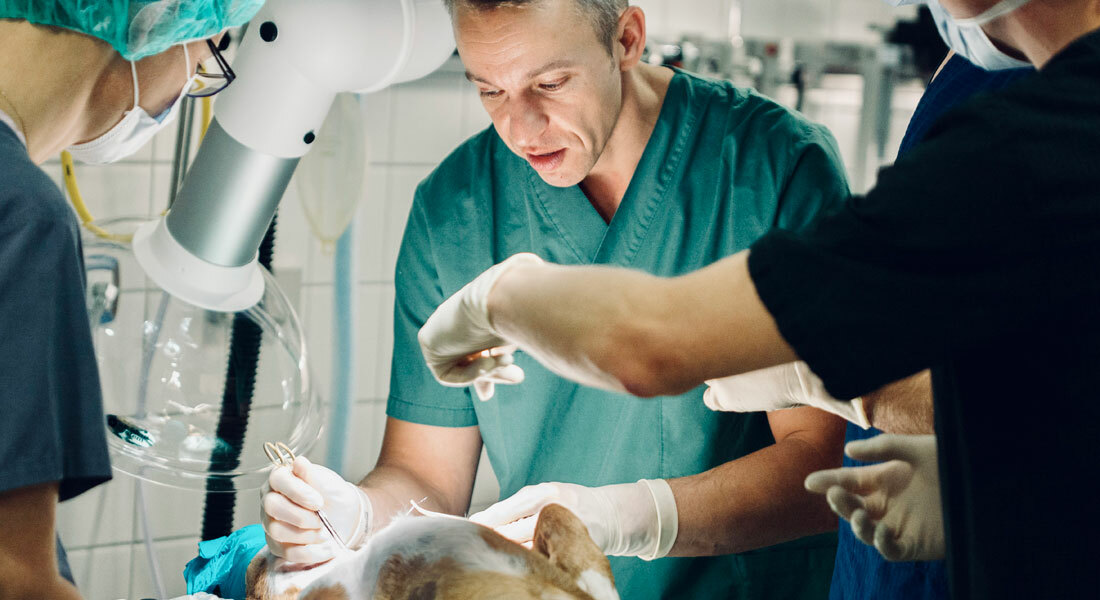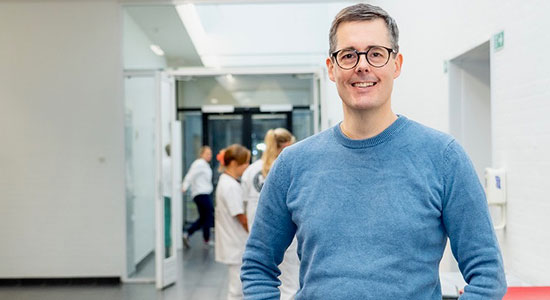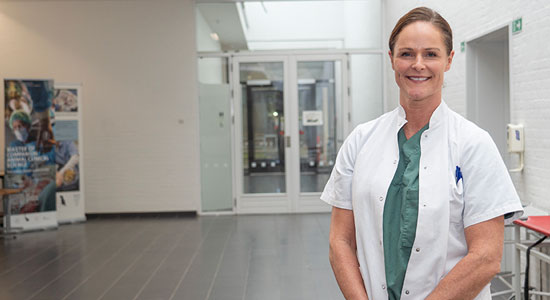Click here to read the curriculum in the course catalogue.
Course code: SCAM25003U

The purpose of this course is to provide the students with theoretical and practical tools to perform rational diagnostic work-up and clinical decision-making, and to extend the participants knowledge, personal skills and competences within the discipline of companion animal surgery.
The course will provide the students with theoretical and practical competences within the fundamentals of soft-tissue surgery focusing on common abdominal (abdominal wall, gastro-intestinal, splenic, urological), and ear, nose, and throat surgeries in primary and referral practice.
The course addresses the principles of and uses a set of tools to assess the outcome of soft-tissue surgeries.
As part of the responsibilities of the companion animal surgeon the course emphasizes the importance of a systematic approach to, and management of, soft-tissue surgical patients, animal pain perception, and individually-tailored anaesthetic and analgesic management.
This course is only available for students enrolled on the Surgery specialisation track.
Read more about the specialisations tracks and the Master's programme on the main page:

James Edward MilesProfessor MSO |

Dorthe HansenDVM, GPCertSAS, MS CACS (Surgery) |
Course dates
21 - 25 September 2026
The course is available every second year.
Examination
Please find dates and details about the exam in the exam schedule.
Having completed the course, the student must be able to:
Knowledge
Skills
Competences
This course is only available for students enrolled in the Surgery specialisation of Master of Companion Animal Clinical Science.
Visit the Surgery page.
You must meet the following criteria to be admitted to this course:
Read more about admission on the main page of Master of Companion Animal Clinical Science.
EU/EEA citizens*
32,500 DKK
Non-EU/EEA citizens
36,033 DKK
*Citizens of the EU, EEA or Switzerland is entitled to a subsidised tuition fee, due to EU legislation, hence the difference in price.
28100 Novara
Italy
Christine Gulstad
Study Administration Officer
lifelonglearning@adm.ku.dk
Tlf: +45 35 32 12 73